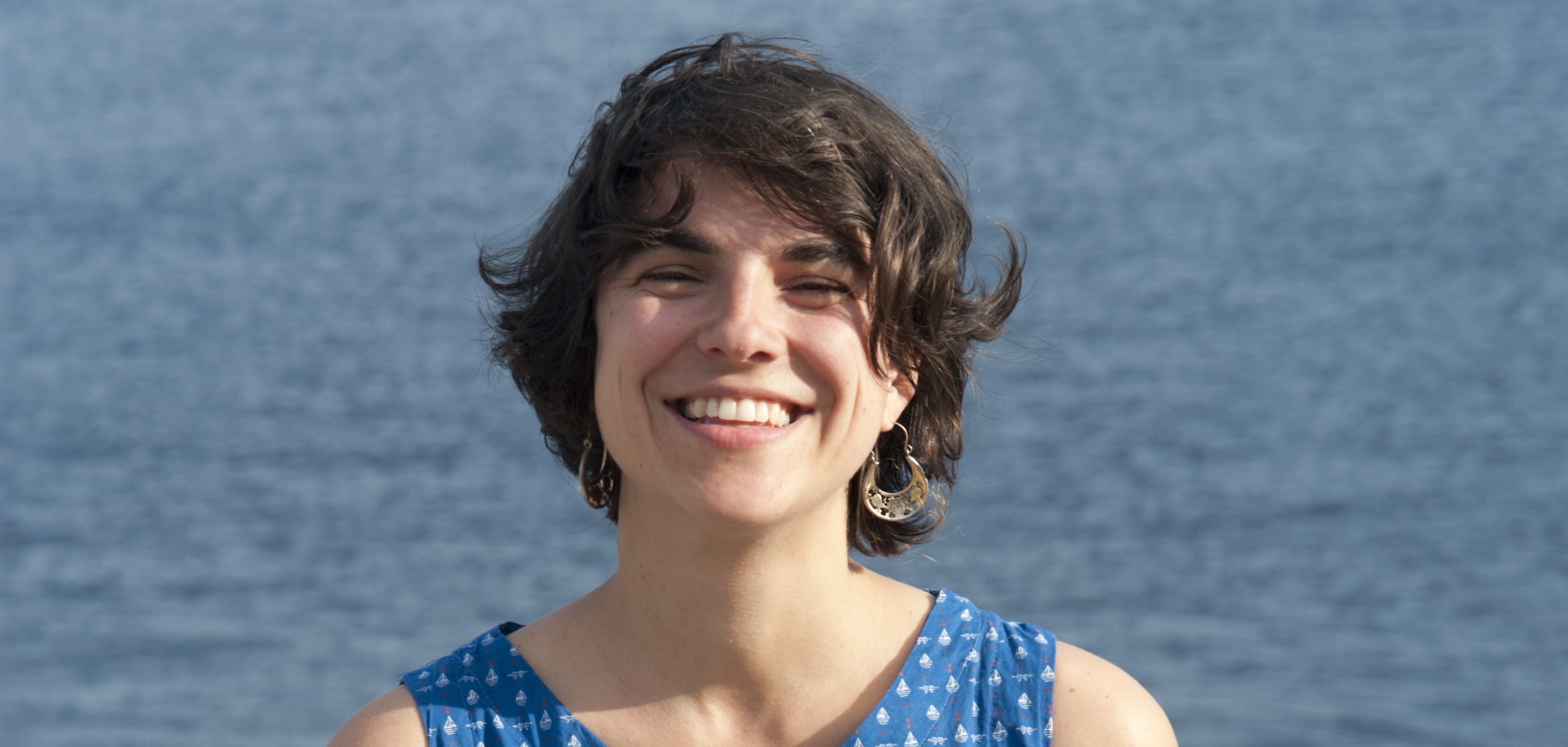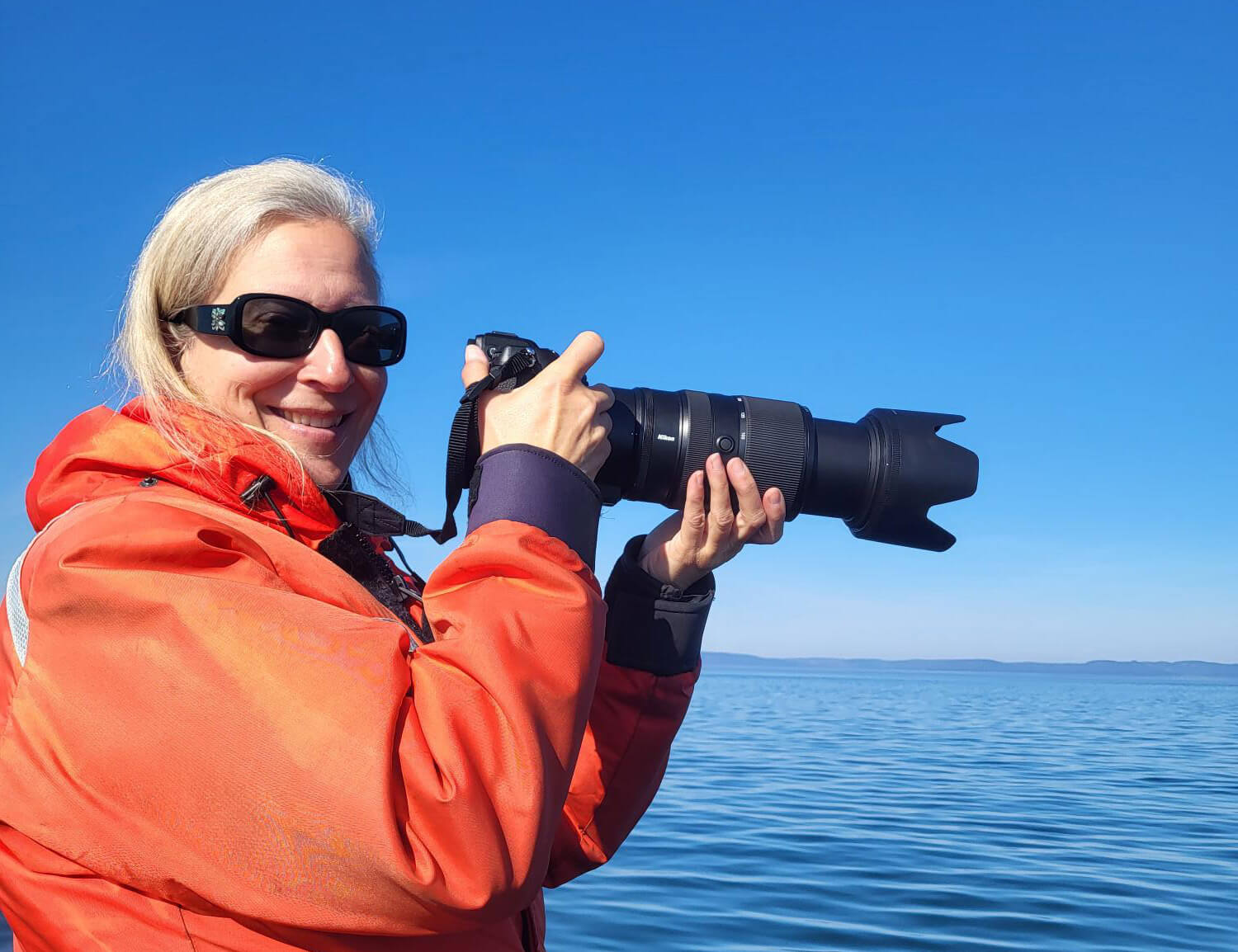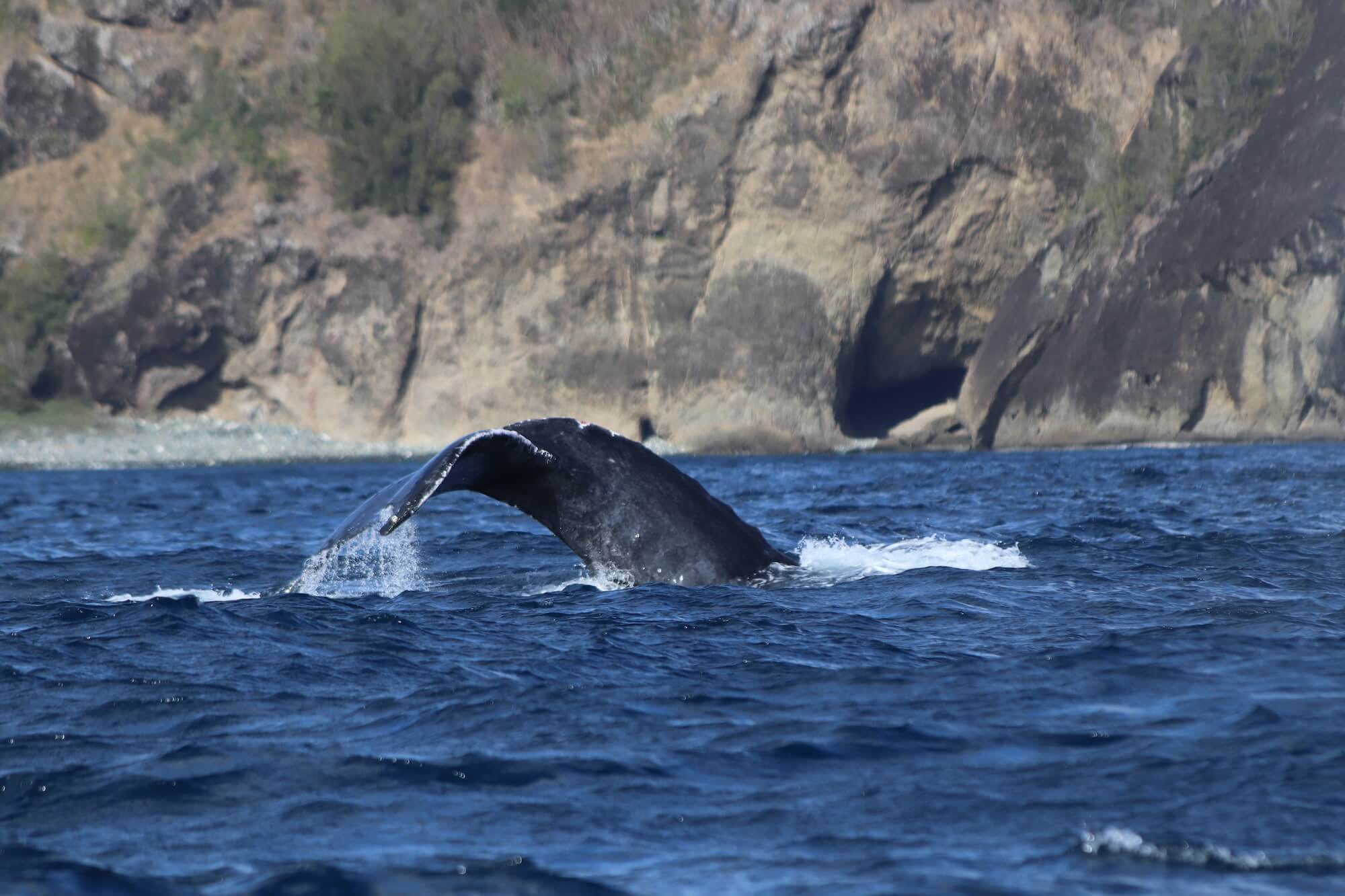Dear readers,
The most observant amongst you may have noticed a new name beneath some of our articles in the past two months. Allow me to introduce myself… I’m Marie-Ève Muller, the newest editor at Whales Online and its French-language counterpart, Baleines en direct. Every year, hundreds of thousands of you read our articles, and it is my honour to take up the torch for these websites.
So how did I get into whales? It’s a story that begins when I was just seven years old. An immense and gleaming black mass emerges from the water a few metres from the sailboat that I’m on. I’m taken aback by the loudness of its breath, its strength, its smell, the fine water droplets floating over to us in the light breeze. It was my first encounter with a whale. And one that I would not forget.
A few years later, with a pair of headphones on my ears, I compare my hearing to that of a humpback whale at the Marine Mammal Interpretation Centre. I want to outplay Daphné, the main character in the movie The Tadpole and the Whale, and be able to converse with cetaceans like she does. I am ten years old and I promise to become a whale linguist. Back home in the Montréal suburbs, I proudly sport my beluga t-shirt and repeat to anyone who wants to listen everything I learned during my vacation on the North Shore.
Even if I never did become a whale linguist, I am fortunate today to have the opportunity to popularize scientific studies on communication between beluga mothers and their calves, to listen to the clicks of sperm whales, and to be moved by the whispers of humpbacks. For Whales Online, I draw on my studies in journalism, professional writing and literature to compose lively, factually-accurate and imaginative texts. I must say that I have great support: the team of writers, collaborators, translator and photographers with whom I work have an insatiable appetite for research, study whales with extraordinary passion and always have one eye on the river.
As editor-in-chief, I strive to continue to offer you an advertisement-free site, a sort of sanctuary in this glitzy web, so that you can better reflect on whales and discover their fascinating universe. If you would like us to continue this commitment of providing a reading space free of ads, we invite you to click here to make a donation within your means. In doing so, you are supporting marine mammal research, education and conservation.
In the coming weeks, a survey will allow you to share your appreciation of the site and its articles as well as indicate topics that you would like to read more about. Until then, I wish you happy reading and, above all, a fabulous encounter with the whales and their river.
Marie-Ève Muller
The writers
 Marie-Sophie Giroux joined the GREMM in 2005. She holds a Bachelor’s degree in Marine Biology and a diploma in Environmental Consulting. As Lead Naturalist, she oversees and coordinates the team working at the Marine Mammal Interpretation Centre and writes for Whales Online and Whale Portraits. She loves to share “whale stories” with visitors to the CIMM and readers alike.
Marie-Sophie Giroux joined the GREMM in 2005. She holds a Bachelor’s degree in Marine Biology and a diploma in Environmental Consulting. As Lead Naturalist, she oversees and coordinates the team working at the Marine Mammal Interpretation Centre and writes for Whales Online and Whale Portraits. She loves to share “whale stories” with visitors to the CIMM and readers alike.
 Josiane Cabana serves as Director for the Quebec Marine Mammal Emergency Response Network call centre. When she’s not responding to cases of dead or vulnerable marine mammals, she likes to take the time to educate local residents on the threats faced by these animals. Biologist by training, she has been involved with the GREMM for more than 15 years, and always with the same undying passion!
Josiane Cabana serves as Director for the Quebec Marine Mammal Emergency Response Network call centre. When she’s not responding to cases of dead or vulnerable marine mammals, she likes to take the time to educate local residents on the threats faced by these animals. Biologist by training, she has been involved with the GREMM for more than 15 years, and always with the same undying passion!
 After several years abroad, where she worked on resource conservation, species at risk and climate change, Béatrice Riché is back on the shores of the St. Lawrence River, which she keeps watch over every day. As editor for the GREMM since 2016, she writes columns on whales with inspiration from events that take place here and afar.
After several years abroad, where she worked on resource conservation, species at risk and climate change, Béatrice Riché is back on the shores of the St. Lawrence River, which she keeps watch over every day. As editor for the GREMM since 2016, she writes columns on whales with inspiration from events that take place here and afar.
The collaborators
David Soares, Renaud Pintiaux, René Roy, Michel Moisan, Timothé Perrero, Robert Michaud, Mélissa Tremblay, MICS’ team, Mériscope’s team and many others!





